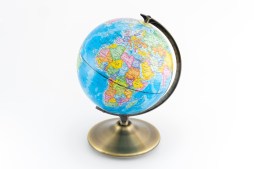A Look at Countries with Strikingly Opposing Views on Press Freedom
Press freedom is a fundamental pillar of democracy that varies dramatically across the globe. This article examines how different countries approach press freedom, highlighting the stark contrasts between nations that prioritize it and those that suppress it.
The Importance of Press Freedom
Press freedom allows for the dissemination of information, fosters public debate, and holds governments accountable. In countries where press freedom is respected, journalists can report on issues without fear of retribution or censorship. Conversely, in nations where it is limited or non-existent, critical voices are silenced, leading to a lack of transparency and an uninformed public.

Countries Championing Press Freedom
Countries like Sweden, Norway, and Finland consistently rank at the top of press freedom indices. These nations boast strong legal protections for journalists and encourage an open dialogue between citizens and media outlets. In these environments, investigative journalism thrives as reporters pursue stories that uncover corruption and promote social change without fear.
Nations with Restrictive Press Policies
On the other end of the spectrum are countries such as North Korea, China, and Iran. These governments impose strict controls on media outlets and often resort to censorship to stifle dissenting opinions. Journalists in these regions face severe penalties for reporting on sensitive topics or criticizing government policies; many are imprisoned or subject to harassment.
The Role of International Organizations
International organizations like Reporters Without Borders (RSF) play a crucial role in monitoring press freedoms worldwide. They publish annual rankings that highlight countries’ performance regarding media liberties based on various factors such as legal frameworks, media independence, and violence against journalists. Their reports raise awareness about violations while advocating for reforms in oppressive regimes.
The Global Impact of Press Freedom
The differences in how countries approach press freedom have significant implications not only for domestic audiences but also globally. Nations with robust free press systems often serve as models for democratic practices while those with oppressive measures risk international isolation as they face criticism from human rights advocates.
Understanding different countries’ approaches to press freedom helps us appreciate its value in society today. By promoting awareness about these disparities, we can foster greater support for journalists worldwide who strive tirelessly to ensure our right to know remains protected.
This text was generated using a large language model, and select text has been reviewed and moderated for purposes such as readability.











